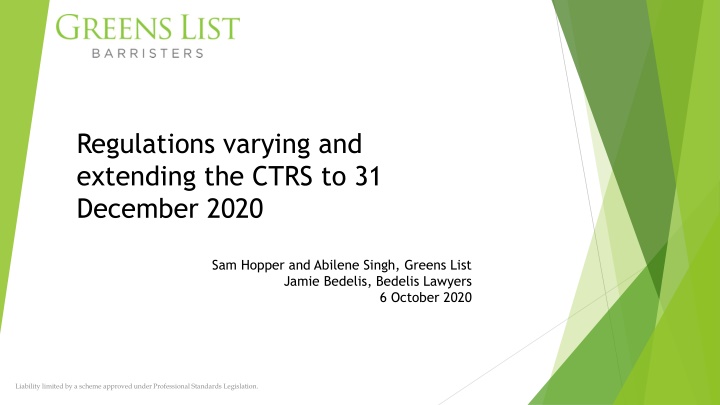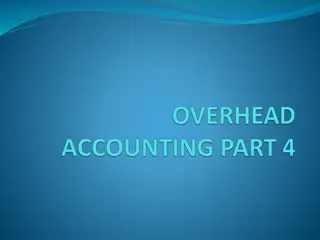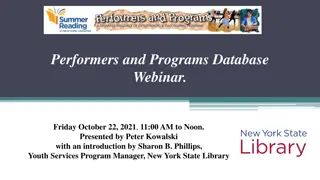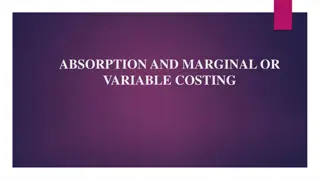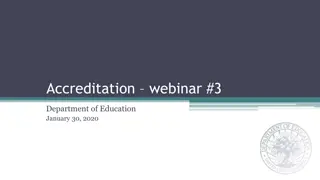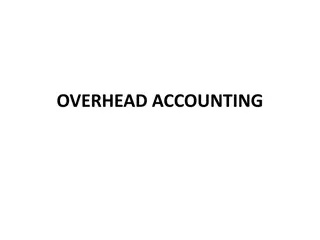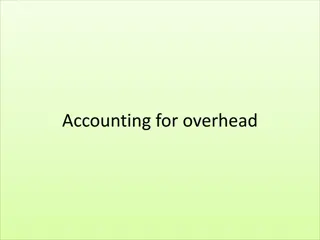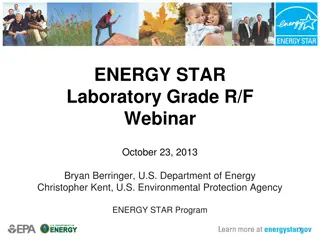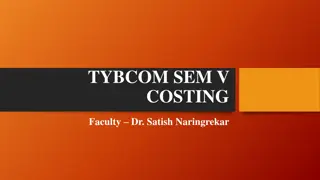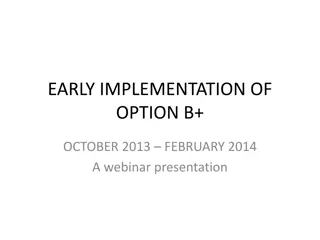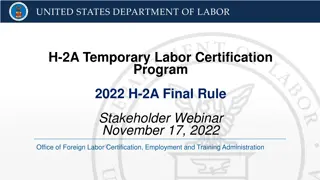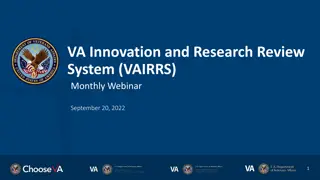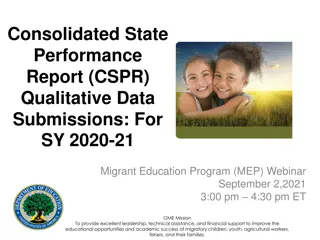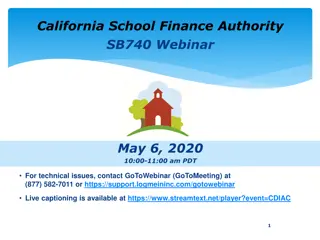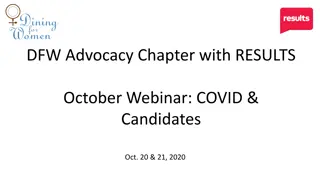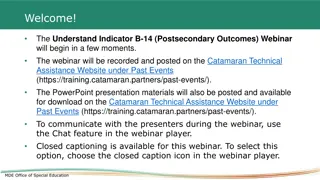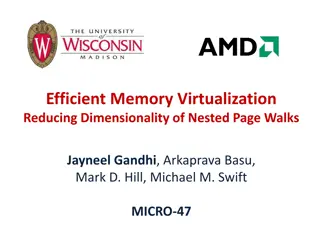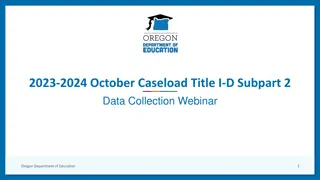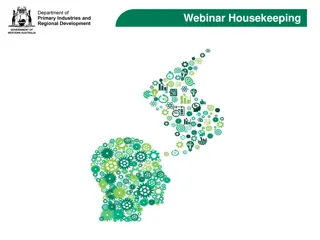Regulations Update: COVID-19 Commercial Leases and Licences Extension
The COVID-19 Omnibus (Emergency Measures) Regulations have been extended to 31st December 2020, creating a new regulatory regime for rent relief. Changes include an extended time period, updated definition of eligible leases, and clarifications regarding turnover.
Download Presentation

Please find below an Image/Link to download the presentation.
The content on the website is provided AS IS for your information and personal use only. It may not be sold, licensed, or shared on other websites without obtaining consent from the author.If you encounter any issues during the download, it is possible that the publisher has removed the file from their server.
You are allowed to download the files provided on this website for personal or commercial use, subject to the condition that they are used lawfully. All files are the property of their respective owners.
The content on the website is provided AS IS for your information and personal use only. It may not be sold, licensed, or shared on other websites without obtaining consent from the author.
E N D
Presentation Transcript
Regulations varying and extending the CTRS to 31 December 2020 Sam Hopper and Abilene Singh, Greens List Jamie Bedelis, Bedelis Lawyers 6 October 2020 Liability limited by a scheme approved under Professional Standards Legislation.
Introduction The COVID-19 Omnibus (Emergency Measures) (Commercial Leases and Licences) Regulations 2020 (Vic) (Amending Regulations) were published with effect from 29 September 2020. The Amending Regulations vary and extend the operation of the COVID-19 Omnibus (Emergency Measures) (Commercial Leases and Licences) Regulations 2020 (Vic) (Regulations).
Resources The following resources are available for practitioners: Consolidated Regulations, available on the Victorian Parliamentary website. VSBC s FAQs page that is regularly updated with information about the Regulations: https://www.vsbc.vic.gov.au/fact-sheets-and-resources/faqs/. Email to tenants dated 2 October 2020 from the VSBC, available at www.samhopperbarrister.com. Blog by Eastern Bridge Lawyers at www.easternbridge.com.au. Sam s blog www.samhopperbarrister.com. Readers may also find the following cases useful, although they are of limited relevance because they are based on NSW legislation: Sneakerboy Retail Pty Ltd trading as Sneakerboy v Georges Properties Pty Ltd [2020] NSWSC 996, (31 July 2020); and Sneakerboy Retail Pty Ltd trading as Sneakerboy v Georges Properties Pty Ltd (No 2) [2020] NSWSC 1141 (26 August 2020).
Extended time period The Amending Regulations extend the operation of the Regulations from its previous end date of 29 September 2020 to 31 December 2020. However, the Amending Regulations create a whole new process for the request and offer of rent relief, so it is better to think of them as creating a new regulatory regime for rent relief for the period 30 September 2020 to 31 December 2020. Importantly, a new request for rent relief is required if the tenant wants relief over the period 30 September 2020 to 31 December 2020 and it only applies from the date of the request, so TENANTS SHOULDMAKE THEIR APPLICATIONS AS SOON AS POSSIBLE.
Eligible leases The definition of eligible lease has changed. It was previously in the Omnibus Act and it is now in the Regulations (see Reg 4A). The main change is that the requirement for the tenant to be an employer has now been removed, so sole traders are eligible. The definition is otherwise substantially unchanged.
Turnover excludes JobKeeper The definition of turnover in the Regulations is clarified so that a coronavirus economic response payment (which includes a JobKeeper payment) is not part of the tenant s turnover (reg 5(2) and (3)).
Extension and variation of moratorium The moratorium on termination for non-payment of rent and failing to trade has been extended to 31 December 2020. The moratorium has also been expanded to prevent landlords terminating for non-payment of outgoings (see reg 9). There is still an untested argument that no eligible lease can be terminated, even for pre-COVID breaches.
Extension of deferred payments Payment of deferred rent has now been pushed back to after 31 December 2020 (see reg 16(2)(a) and (5)). This includes deferred rent under agreements for rent relief made under the old version of the Regulations.
Contents of request for rent relief expanded The tenant s request for rent relief must now be accompanied by (see reg 10(2), emphasis added): (a) a statement from the tenant (i) that the tenant's lease is an eligible lease; and (ii) that the lease is not excluded from the operation of these Regulations under section 13(3) of the Act; and (iii) setting out the tenant's decline in turnover that is associated with the premises (and no other premises); and (b) information that evidences that the tenant (i) is an SME entity; and (ii) is an entity entitled under section 6, 11 or 12A of the jobkeeper rules to a jobkeeper payment, including (A) the receipt number issued by the Commissioner of Taxation when the tenant elected to participate in the jobkeeper scheme; and (B) a copy of the tenant's most recent notice under the jobkeeper rules to the Commissioner of Taxation;
Contents of request for rent relief expanded (continued) (c) information that evidences the tenant's stated decline in turnover, including at least one of the following (i) extracts from the tenant's accounting records; (ii) the tenant's business activity statements relating to the relevant turnover test period; (iii) statements issued by an ADI in respect of the tenant's account; (iv) a statement prepared by a practising accountant. The VSBC s email of 2 October 2020 includes information and a letter template (see slide 2). Note:the email from the VSBC says you don t need a new request if before 29 September 2020 you made a request for rent relief to 31 December 2020 that contains information required by the Amending Regulations. That proposition is controversial. I think it is prudent to make another request now.
Landlords offer coupled to decline in turnover at the premises The requirements of the landlord s offer of rent relief have changed (see reg 10(4)). The main changes are: the offer must be at a minimum, proportional to the decline in the tenant's turnover associated with the premises (reg 10(4)(ba)). Importantly, that must be the tenant's decline in turnover that is associated with the premises (and no other premises) (see cross-reference to reg 10(2)(a)(iii)); and the requirement to take into account the landlord s ability to grant the relief has now been removed (previously in reg 10(4)(d)(iv). This can be contrasted to the NSW position, that requires an offer to take into profitability over the whole of the tenant s business (see Sneakerboy (No 2).
Re-negotiation of rent relief Subsequent rent relief negotiation (reg 11) has been significantly amended. A tenant may make a further request for rent relief if: its financial circumstances have materially changed; or there is a rent relief agreement that is not proportionate to the tenant s decline in turnover; or the agreement does not apply from the date of the request to 31 December 2020. Further: previously, there was no requirement in subsequent rent relief to provide a waiver of rent (ie it could all be deferred); and this has been changed so that half of the subsequent rent relief must be by way of waiver.
VSBC can make a binding order on rent relief The Victorian Small Business Commission has the power to make a binding order on the amount of rent relief that a landlord must grant. Only a tenant can apply for a binding order. The VSBC will only make a binding order if the landlord has not responded to communications or not negotiated in good faith, suggestion there are likely to be few applications for binding orders. A binding order can be reviewed by VCAT. In the absence of a binding order, parties rights to litigate at VCAT and Court are unchanged. The Government did not otherwise clarify the Courts or VCAT s power to make orders for rent relief, despite comments from Robb J in Sneakerboy (No 2)questioning the Court s powers.
Questions received by email Q: The new regulations extend the operation of the earlier regulations to 31/12/2020. An earlier extension had the new sunset date as 26/4/2021. Which is correct or am I confusing something? A: The Omnibus Act has been extended to 26 April 2021 but the Regs are only extended to 31 December 2020. It appears that the Act is extended further in the event that the Government needs to extend the CTRS by another few months, but we have not heard any suggestion at this stage that it will be
Questions received by email Q: Regulation 10(2A) refers to the decline in turnover being calculated with the actual decline in turnover test applying to the most recent turnover test period applying to the Tenant. Given that the Regulations will now effectively refer to rent relief applications for periods after 29 September, does this mean the test is based on the new JobKeeper Test and should compare the BAS for July to September 2020 to determine the reduction in turnover? Q: Given rent relief must only be offered by a landlord from the date the application is made in accordance with the regulations, does a Tenant need to wait for their BAS statement to be prepared (or ensure they have other documents which evidences these figures in accordance with the regulations) to submit the application? Or would they rely on the previous JobKeeper eligibility test which they satisfied prior to the new JobKeeper commencing 29 September? We think that, a tenant does not need to wait until their BAS is prepared. But, the tenant does need the accurate amount of decline in turnover for that relevant period, which is required to be supported by the kinds of financial evidence set out in reg 10(2)(c) (e.g. extracts from accounting records MYOB etc; financial statements; statement prepared by accountant).
Questions received by email Q: The new test is for decline in trade associated only with the premises . What about internet sales? What about services that have been rendered from home since lockdown started? A: Internet sales would appear not to be taken into account when considering the tenant s decline in trade if they are made from other premises. A: Services rendered from home are interesting. A strict reading of the Amending Regulations suggests that those fees may be excluded, but we suspect that this was not the intention of the legislation.
